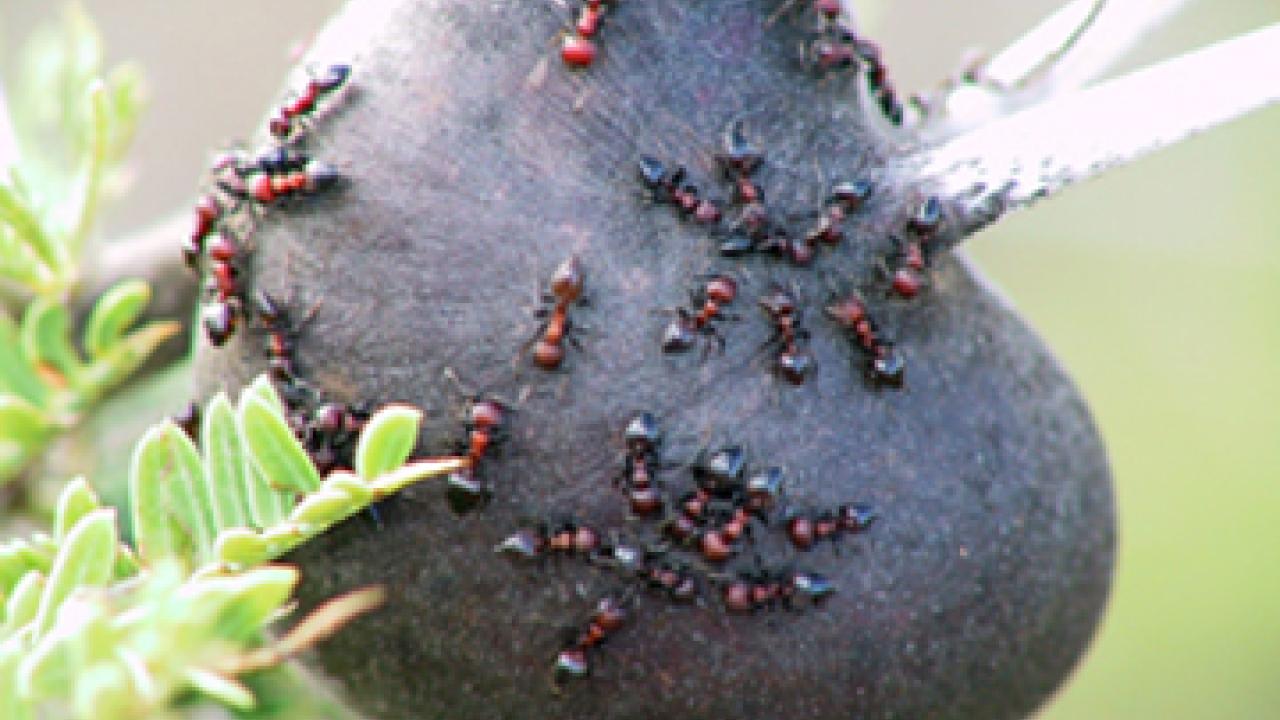UC Davis researchers in Africa have a riveting tale of natural balance gone bad, with an unhappy moral for other ecosystems: This could happen to you.
The research, published in Science, comes from central Kenya where in 1995 UC Davis ecologist Truman Young put up fences to keep elephants and other large herbivores out of 10-acre plots in the savannah.
Because elephants eat acacia trees "like we eat cupcakes," as another researcher told National Public Radio, one might think that fencing them out would be good for the trees. Instead, excluding the elephants caused the collapse of a long-standing, mutually beneficial relationship between acacia trees and the ants that lived in the branches.
For thousands of years, elephant grazing in the trees had been limited -- because the ants would swarm onto the elephants' sensitive heads and trunks. In return, the trees provided a place to live and food to eat.
But when Young's fences took the acacias off the elephants' menu, the trees cut the ants' meal and housing subsidies. The ants moved away and tree-eating bugs moved in. Eventually the trees inside the fences were smaller and sicker than those outside, even considering the effects of elephant grazing on the unfenced trees.
"That species as different as elephants, ants and trees are so intimately interconnected shows, once again, that when we mess with nature, we should expect dire consequences that we cannot anticipate," Young said.
Co-authors included Young's former graduate student Todd Palmer, now an assistant professor of zoology at the University of Florida; and two UC Davis professors: Maureen Stanton, evolution and ecology; and Richard Karban, entomology.
Media Resources
Dave Jones, Dateline, 530-752-6556, dljones@ucdavis.edu
